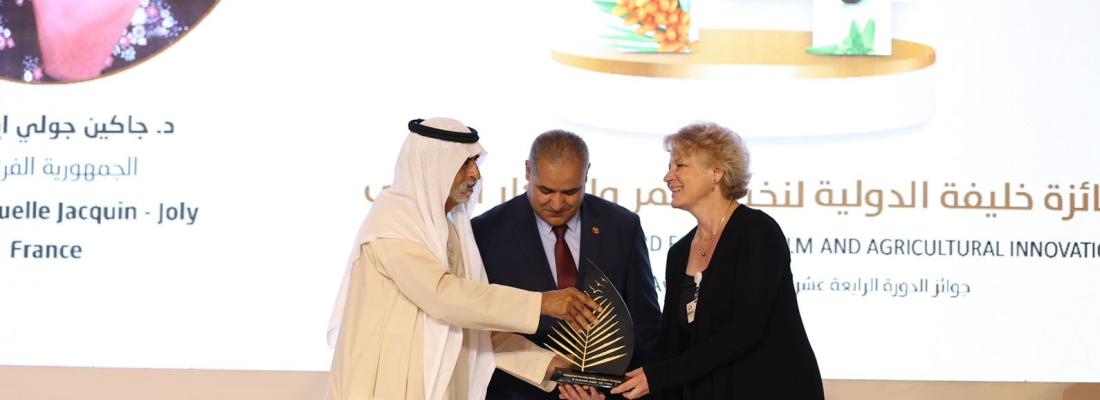Agroecology Reading time 2 min
Emmanuelle Jacquin-Joly recognised for her red-palm-weevil research
Published on 22 March 2022

Emmanuelle Jacquin-Joly, INRAE researcher at the Institute of Ecology and Environmental Sciences of Paris (iEES-Paris), received an award for her work on the red palm weevil (Rhynchophorus ferrugineus), the main palm tree pest, during the 7th International Date Palm Conference in Abu Dhabi. This international individual award, granted as part of the Khalifa International Award for Date Palm and Agricultural Innovation in the "Distinguished Innovative Studies and Modern Technology" category, is given each year to people working in the areas of science, industry, or government services or to NGOs that have had a significant impact on date palms and/or the region's agricultural sector via a major innovation.
Emmanuelle Jacquin-Joly won the award for her collaborative research to identify a red palm weevil olfactory receptor involved in detecting and recognising the insect's aggregation pheromone. This receptor will now make it possible to develop a biosensor or "bio-inspired artificial nose" that could signal the presence of this pest at a very early stage. The artificial nose detects aggregation pheromones emitted by the weevil when it alights on palm trees. "They emit this pheromone to find each other on palm trees to then feed, mate and lay their eggs," explained the INRAE scientist. The work done by Emmanuelle Jacquin-Joly and her team focussed on identifying and characterising the right receptor to be included in the artificial nose.
This research was carried out as part of an international consortium involving Great Britain, Saudi Arabia, Italy and France, together with financial support from the King Abdullah University for Science and Technology (KAUST, Saudi Arabia) and the French Investments for the Future "Growing and Protecting Crops Differently" priority research programme (Pherosensor Project). In fact, for Emmanuelle Jacquin-Joly, "While this is an individual award, it recognises the consortium's work as a whole". Initial tests of the artificial nose, carried out first in a laboratory and then in the field in Saudi Arabia, have been promising. It will be a valuable decision-making support tool for combatting the major threat the red palm weevil poses to many countries, including France.
